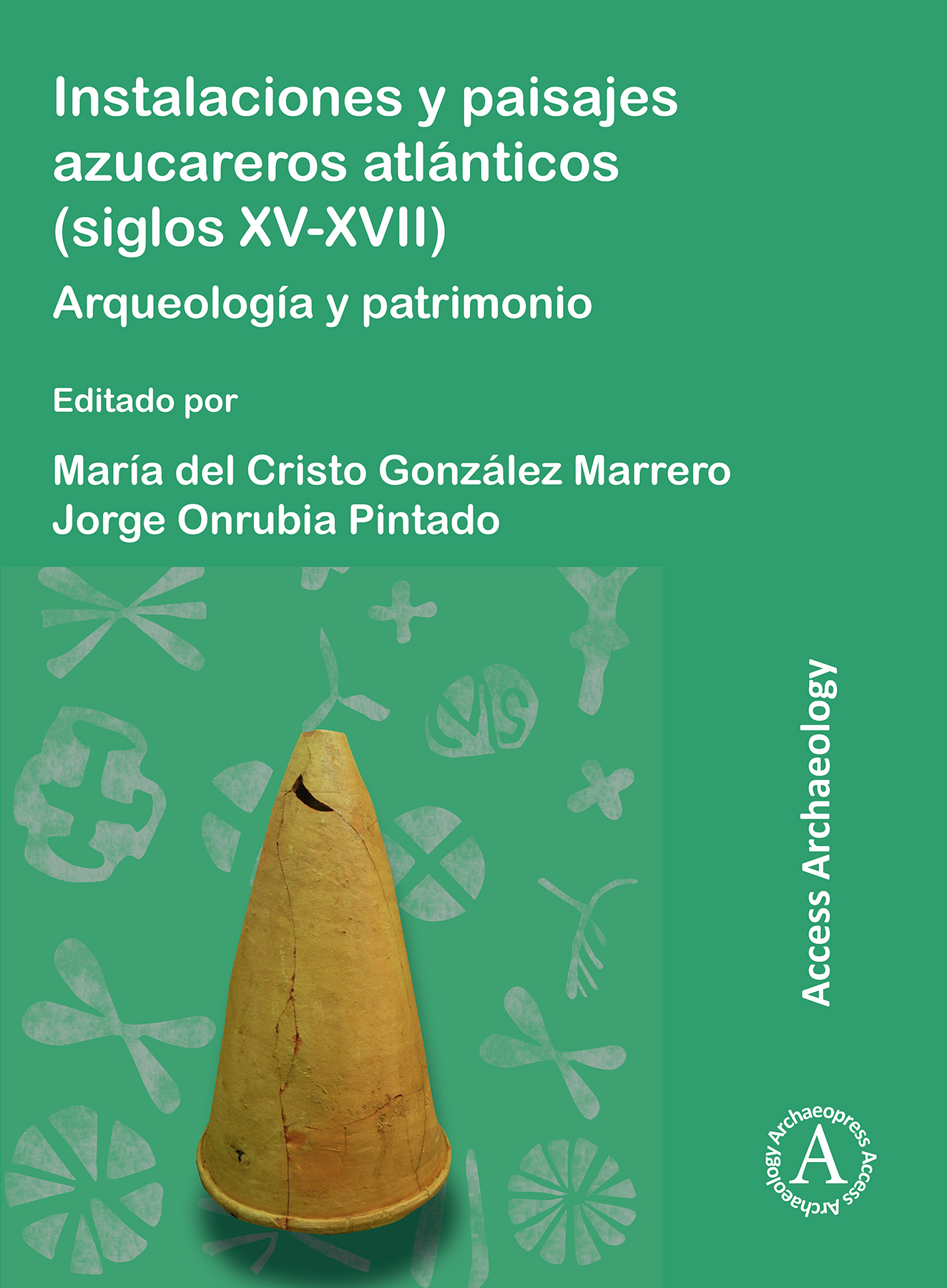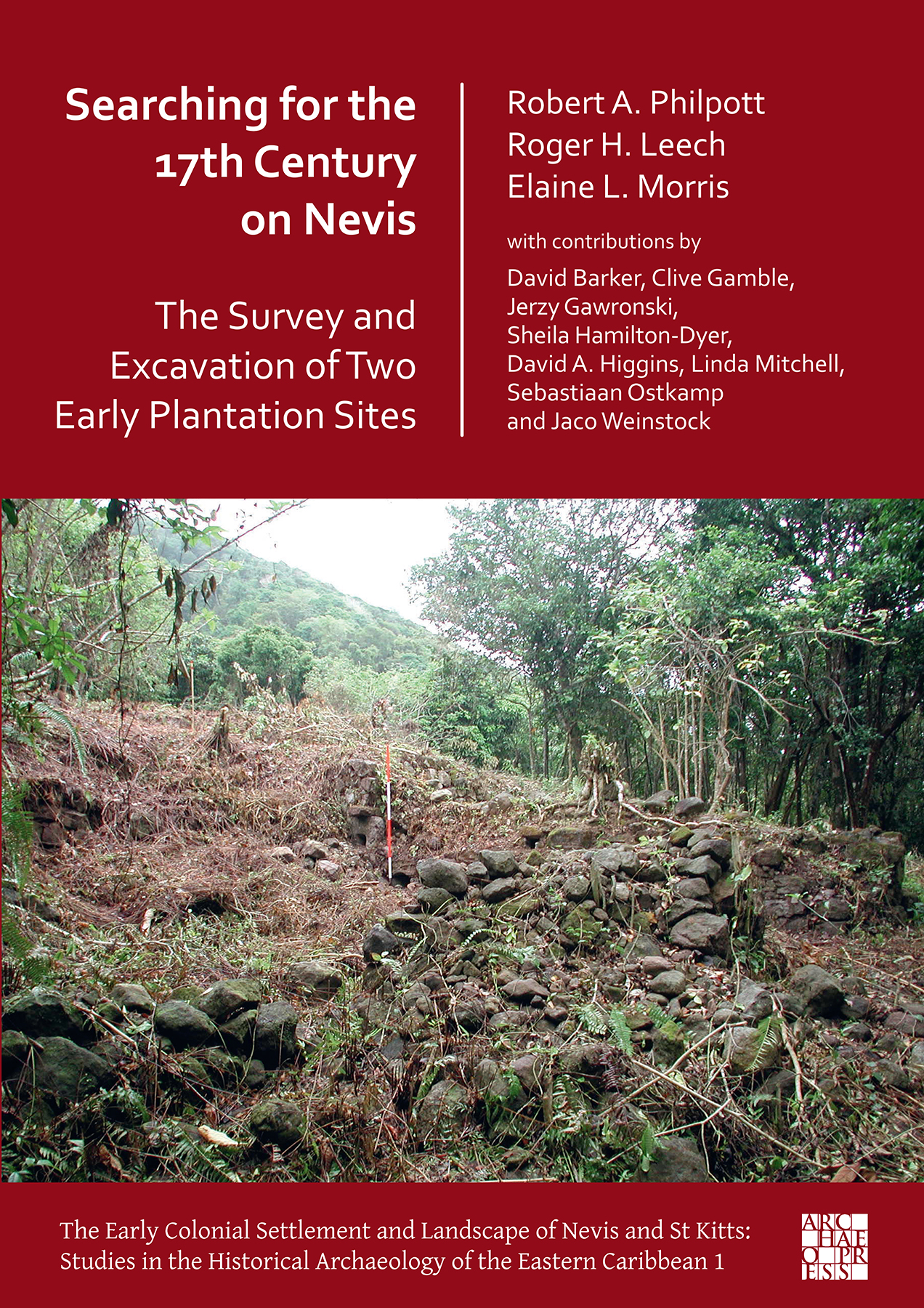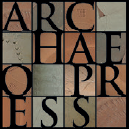
Publishing Scholarly Archaeology since 1997

Download Sample PDF
H 276 x W 203 mm
216 pages
Illustrated in colour throughout
Spanish text
Published Dec 2023
Archaeopress Access Archaeology
ISBN
Paperback: 9781803276847
Digital: 9781803276854
Keywords
Sugar; Atlantic; Globalisation; Middle Ages; Early Modern Period; Archaeology; Heritage
Related titles


Instalaciones y paisajes azucareros atlánticos (siglos XV-XVII)
Arqueología y patrimonio
Edited by María del Cristo González Marrero, Jorge Onrubia Pintado
Paperback
£40.00
Includes PDF
PDF eBook
(personal use)
Free Download
PDF eBook
(institutional use)
Download
Between the 15th and 17th centuries, sugar cultivation and processing, a Mediterranean industry throughout the Middle Ages, experienced what we can aptly describe as the first period of its prosperous Atlantic history. This book explores the material dimension of sugar mills and the landscapes of which they are both cause and effect.
Contents
1. Introducción. La agro-manufactura azucarera y el Atlántico (siglos XV-XVII): materialidades y legados – Jorge Onrubia Pintado, María del Cristo González Marrero
2. El azúcar en el reino nazarí de Granada. Entre tradición y renovación – Adela Fábregas García
3. The sugar production cycle in the Atlantic archipelagos of the Portuguese expansion
(15th-18th centuries): the material remains – André Teixeira, Ricardo Costeira da Silva, Inês Pinto Coelho, Filipa Galito Silva, Sara Ferreira
4. Les sucreries de la région du Sous marocain et leur territoire – Morgane Godener, Abdallah Fili
5. Los ingenios azucareros en la isla de Gran Canaria (siglos XV-XVII). Arqueología, tecnología, materialidad – María del Cristo González Marrero, Jorge Onrubia Pintado, Valentín Barroso Cruz, Pedro C. Quintana Andrés
6. El ingenio azucarero de Alojera (La Gomera, Islas Canarias): el lugar donde anocheció y nunca amaneció – Juan Francisco Navarro Mederos, Juan Carlos Hernández Marrero
7. Los primeros ingenios azucareros en América – Santiago Duval
8. From sugar farm to cultural landscape: 489 years of the National Heritage Ruins of the Engenho São Jorge dos Erasmos Sugar Mill (Brazil) – Vera Lucia Amaral Ferlini, Beatriz Pacheco Jordão, André Muller de Mello, Rodrigo Christofoletti
9. Les débuts du raffinage du sucre en France et aux Antilles françaises. Une approche par l’outil céramique – Sébastien Pauly
10. Sugar in medieval and modern Britain – Alejandra Gutiérrez
11. Documentación y patrimonio lingüístico: la terminología del oro blanco – Dolores Corbella, Ana Viña Brito
About the Author
María del Cristo González Marrero, PhD in Medieval History and Professor at the University of Las Palmas de Gran Canaria, is a specialist in the study of the materiality of late medieval Hispanic society. She has combined this line of research with studies related to insular and North African archaeology. Recently she has been the principal investigator of the project entitled Patrimonio agrario y agronomía práctica. Técnicas agrícolas e historia rural en la Gran Canaria indígena y colonial (s.s. X-XVI), funded by the CajaCanarias Foundation and La Caixa Foundation, part of whose results are presented in this book.
Jorge Onrubia Pintado, historian and archaeologist, is currently director of the Laboratory of Archaeology, Heritage and Emerging Technologies of the UCLM. He specialises in the history of the Amazigh Maghreb and the pre-Hispanic and colonial Canary Islands. His current lines of research include landscapes and built spaces, the dynamics of colonisation and acculturation, the history of techniques and the theory of materiality, the archaeology of the image, and ‘public’ archaeology and heritage processes.
en español
María del Cristo González Marrero, Historiadora y profesora de la Universidad de Las Palmas de Gran Canaria. Está especializada en el estudio de la materialidad de la sociedad bajomedieval hispana y en arqueología canaria y norteafricana.
Jorge Onrubia Pintado, Historiador y arqueólogo, actualmente trabaja como profesor en la Universidad de Castilla-La Mancha donde dirige el Laboratorio de Arqueología, Patrimonio y Tecnologías Emergentes (LAPTE). Está especializado en la historia del Magreb amazige y de las islas Canarias prehispánicas y coloniales.

 Add to wishlist
Add to wishlist
